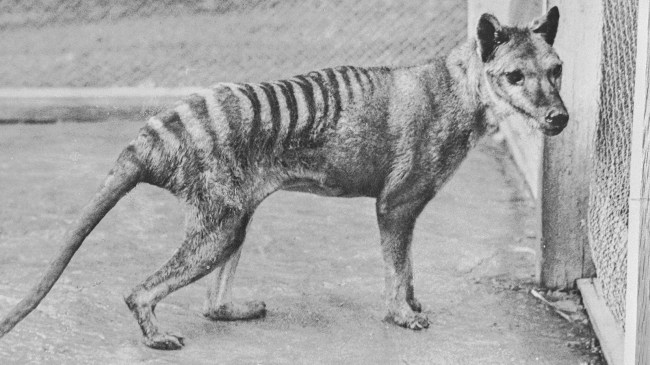Getty Image
It’s been close to a century since the last Tasmanian tiger on the planet died in captivity, but a group of scientists believe they have what it takes to bring it back from extinction in the near future.
Experts believe close to 900 species have fallen victim to extinction since the 16th century—a group that includes the Tasmanian tiger, a marsupial also referred to as a “thylacine” that was native to the island it takes its name from as well as Australia and New Guinea.
It’s believed there were around 5,000 thylacines roaming Tasmania when European settlers first arrived on the island at the start of the 1800s, and their propensity for going after sheep and other livestock sparked a government-backed campaign to eradicate the animals that subsequently saw their population plummet by the time the 20th century rolled around.
In 1936, the last remaining Tasmanian tiger died in captivity in a zoo in the city of Hobart (it wasn’t officially declared extinct until 1982, but no other specimen has been found in the wild since then). However, we may soon live in a world where they once again exist.
According to CBS News, scientists employed by the American biotech company Colossal Biosciences say they’ve managed to recreate 99.9% of the Tasmanian tiger genome with the help of tissue samples obtained from the preserved head of a thylacine that’s been floating in ethanol for the past 110 years.
Those tissue samples have allowed the scientists to analyze RNA samples that provide more insight into the neurological workings of the Tasmanian tiger as they work on editing the DNA of its closest living relative (a small. mouse-like marsupial called the fat-tailed dunnart) in the hopes of resurrecting the thylacine.
This isn’t he only ambitious project the folks at Colossal are trying to tackle, as the company made waves a few years ago when it said it was planning to use similar technology to bring the woolly mammoth back from the dead.

